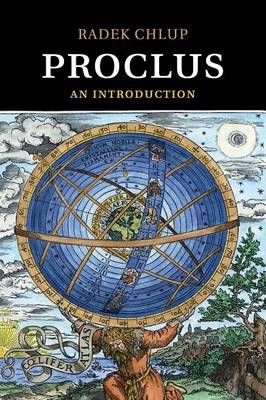
Proclus
An Introduction
Seiten
2016
Cambridge University Press (Verlag)
978-1-316-62885-0 (ISBN)
Cambridge University Press (Verlag)
978-1-316-62885-0 (ISBN)
The first comprehensive introduction to the philosophical and religious thought of Proclus the Neoplatonist, one of the most complex and influential thinkers of antiquity. In addition to covering all the basic areas of his thought, the book sets Proclus in the historical, social and religious context of late antiquity.
Proclus of Lycia (412–485) was one of the greatest philosophers of antiquity, producing the most systematic version of late Neoplatonic thought. He exercised enormous influence on Byzantine, medieval, Renaissance and German Classical philosophy, ranking among the top five of ancient philosophers in terms of the number of preserved works. Despite this he is rarely studied now, the enormous intricacy of his system making the reading of his treatises difficult for beginners. This book provides the first comprehensive introduction to all the basic areas of Proclus' thought. It carefully guides the reader through his metaphysics, theology, epistemology and theory of evil, as well as his sophisticated philosophy of religion. It also sets Proclus in the historical, social and religious context of late antiquity, offering a synthetic account that will appeal to historians and students of ancient religion.
Proclus of Lycia (412–485) was one of the greatest philosophers of antiquity, producing the most systematic version of late Neoplatonic thought. He exercised enormous influence on Byzantine, medieval, Renaissance and German Classical philosophy, ranking among the top five of ancient philosophers in terms of the number of preserved works. Despite this he is rarely studied now, the enormous intricacy of his system making the reading of his treatises difficult for beginners. This book provides the first comprehensive introduction to all the basic areas of Proclus' thought. It carefully guides the reader through his metaphysics, theology, epistemology and theory of evil, as well as his sophisticated philosophy of religion. It also sets Proclus in the historical, social and religious context of late antiquity, offering a synthetic account that will appeal to historians and students of ancient religion.
Radek Chlup is a lecturer at the Institute for Philosophy and Religious Studies at the Faculty of Arts, Charles University, Prague. He specializes in Greek philosophy and religion as well as in general methodology for the study of religion.
1. Historical background; 2. Proclus' metaphysics; 3. Proclus' polytheistic theology; 4. Epistemology; 5. Ways of unification; 6. Inspired poetry and its symbols; 7. Evil and theodicy; 8. Ethics; 9. Worldview; 10. Epilogue: Proclus' legacy.
| Erscheinungsdatum | 04.10.2016 |
|---|---|
| Zusatzinfo | 15 Line drawings, black and white |
| Verlagsort | Cambridge |
| Sprache | englisch |
| Maße | 153 x 230 mm |
| Gewicht | 510 g |
| Themenwelt | Geschichte ► Allgemeine Geschichte ► Vor- und Frühgeschichte |
| Geisteswissenschaften ► Philosophie ► Philosophie Altertum / Antike | |
| Geisteswissenschaften ► Religion / Theologie | |
| ISBN-10 | 1-316-62885-X / 131662885X |
| ISBN-13 | 978-1-316-62885-0 / 9781316628850 |
| Zustand | Neuware |
| Informationen gemäß Produktsicherheitsverordnung (GPSR) | |
| Haben Sie eine Frage zum Produkt? |
Mehr entdecken
aus dem Bereich
aus dem Bereich
Was Pompeji über uns erzählt
Buch | Hardcover (2023)
Propyläen (Verlag)
32,00 €
auf den Spuren der frühen Zivilisationen
Buch | Hardcover (2023)
C.H.Beck (Verlag)
20,00 €


